Jonathan Demme And Untold ‘Silence Of The Lambs’ Tales: Hannibal, Clarice, Tally, Hackman, And A Discarded Scary Ending

In memory of today’s passing of a great director, Deadline is rerunning our last story that featured a lengthy interview with Jonathan Demme. Originally published Feb. 17, 2016, the piece commemorated the 25th anniversary of his landmark film The Silence of the Lambs. Demme participated and was most generous and reflective on looking back at an unlikely triumph, the rare horror movie from a dying studio that found its way to Oscar gold, winning all the night’s major prizes.
EXCLUSIVE: Valentine’s Day marked the 25th anniversary of The Silence Of The Lambs. It’s the first and only Best Picture-winning horror film; the last film to win Oscars in the five key categories; and the only modern-era film to win Best Picture despite being released over a year before its Oscar night triumph. The film’s success–five Oscars and $272 million global gross on a $19 million budget–is remarkable considering that its cratering studio, Orion, spent nothing an Oscar campaign while Best Picture rivals Beauty And The Beast, Bugsy, JFK and The Prince Of Tides spent lavishly.
But long before Silence, Anthony Hopkins, Jodie Foster, Jonathan Demme and Ted Tally won gold, and way before Thomas Harris would sell movie rights to his follow-up novel for a near record $10 million, and before the sequels and TV series, Silence was a film property no studio wanted any part of. Everybody passed on the lurid cannibal serial killer subject matter, and the proud studio that bit was so broke at the end that it dropped the film in February for the cash, seemingly dooming its Oscar chances. Deadline got this trio to reminisce with a lot of untold stories: former Paradigm agent Robert Bookman, who brokered Harris’ book deals (and had a cameo in the film along with former colleague Rick Nicita); Tally, who started writing with notes from Gene Hackman; and Demme, who started his career directing for Roger Corman then rose to classy, edgy hits Something Wild and Married To The Mob, and blended those sensibilities to elevate a genre film into something more.
RelatedDirectors Guild Hails Jonathan Demme As “Iconic” & “Groundbreaking”
WHY STUDIOS DIDN’T DEVOUR THE BOOK RIGHTS LIKE LECTER ON A CENSUS TAKER’S LIVER
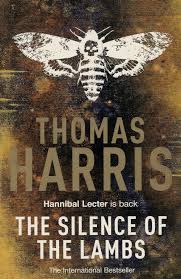
: The Thomas Harris book Red Dragon was bought by Warner Bros, put in turnaround, and Dino De Laurentiis picked it up, made Manhunter, and it wasn’t a financial success. When Silence was published, Thomas had the right to sell a one-picture license, but he would have to change character names and places. Nobody was interested, even when it was way up on the bestseller list. I remember hearing that Paramount had negative coverage. I called Ned Tanen and said, ‘I know that you got very negative coverage. I’m not asking you to read the book yourself. Just give it to another reader whose opinion you really trust and who has a different sensibility. He called me back three days later. He said, ‘I did what you asked, and the other reader gave it a definite recommend. I’m still not buying it.’ Nobody wanted it. It was a combination of the serial killer aspect of it and the failure of Manhunter. It reminded of how the science fiction genre was as dead as a door nail…until George Lucas made Star Wars. Then one day my colleague Fred Specktor asks, are the rights still available? Gene Hackman wants to buy them. Gene called a good friend, Arthur Krim at Orion, and they bought it together, 50/50 partners. Gene wanted to direct, and play Hannibal Lecter.
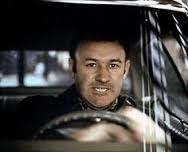
TED TALLY
: I was the first writer on the job. Hackman gave me his approval finally after a lot of discussion. He didn’t have much input. We only had meetings where I pitched my ideas. It was basically, go write the first draft. We didn’t talk much about it. He hadn’t decided whether he was going to also try to play Lecter, while directing it. He thought he might have to drop back to playing Crawford, the FBI boss. He did say, maybe Bobby will play Lecter, but I didn’t have the nerve to ask, Bobby who? Bobby Duvall? Bobby Redford? Bobby De Niro? He just assumed that I would know who Bobby was. And then he quit, while I was writing my first draft. He never called me. I just heard one day from my agent, Gene Hackman’s dropped out of the project.
BOOKMAN: I get a call from Fred saying, you won’t believe this. Gene Hackman’s daughter read the book. And she called her father and said, ‘Daddy, you’re not making this movie.’ So, Gene called Arthur, told him what happened. Arthur said, ‘Don’t worry Gene, I’ll buy out your half.’ That’s how Orion got the rights.
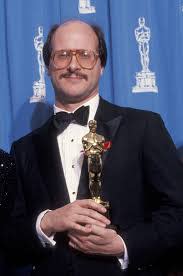
TALLY
: That was quite a kick in the teeth because at the same time I found out that Orion hadn’t quite signed the book rights either. It was the worst two or three days of my professional life. I was a third of the way in, and I hadn’t been paid. I thought, this thing is going downhill in a hurry. But then I got a reassuring phone call from Mike Medavoy saying don’t worry about it. Keep writing. We’re going to find the right director for this. Just keep writing.
JONATHAN DEMME: God bless Gene Hackman’s daughter, if that’s true, and that’s what I’ve always heard. God bless her. Ted Tally was at work on the screenplay under Hackman’s notes. I had just done two pictures with Orion, Something Wild followed by Married to the Mob. How can I make you understand how incredible it was, working at Orion with Bill Bernstein, Mike Medavoy, Eric Pleskow, and Arthur Krim, these four amazing human beings? The whole Orion zeitgeist, of treating filmmakers as partners, to me it’s inseparable from the success of Silence of the Lambs. It was Camelot. I had a script I liked, about a road rage victim, where somebody goes ballistic and chases our hero through the rest of the movie. I’d been jones-ing to work with Danny Glover and I wanted to do a thriller. I gave Mike Medavoy the script. Mike called the next day and said, ‘Jonathan, this is a good script and we love Danny. We’ll go with this, but I want you to read something before we commit to this picture.’ He sent me the book, The Silence of the Lambs. It was all there. This brilliant novelist Thomas Harris, at the peak of his powers, telling this classic American story, with this great leading woman part. I was like, ‘Oh my God, yes.’ I just knew it could be scary as hell, an incredible picture. Ted Tally did a remarkable job on the screenplay. But every night we were shooting, I’d study the scene for tomorrow, and I’d also go back to the book and read what Harris had written, all the levels that were going on there. I’d arrive on the set just tremendously fortified, from the Harris point of view and the terrific Ted Tally script.
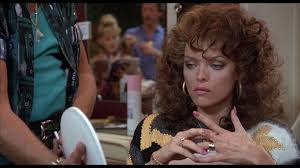
BOOKMAN
: I don’t remember the exact deal, maybe $1 million. There was still the issue of Hannibal Lecter and Dino De Laurentiis. They tried to come up with alternate names, but nobody could think of a better one. I get a call. Would you mind asking Dino for the right to use the name? In my opinion, if it had been a studio, they would’ve told me to stick it where the sun doesn’t shine. But Dino’s a dealmaker and he says, no problem. He got some rights out of it, but I can’t imagine that movie without Hannibal Lecter. If it had been another name, the franchise would not have had the same value. Dino was smart, and he was able to exploit that in the sequel, when Thomas Harris finally wrote it ten years later. I recall Orion wanted Jodie Foster, but Jonathan was intrigued by Michelle Pfeiffer after Married To The Mob.
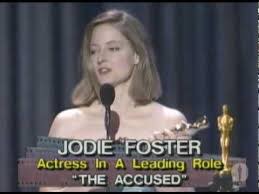
TALLY
: Jodie was always in my mind. It was a no-brainer. She had just won an Academy Award for The Accused. She was the right age for the character. She had the right intelligence to play somebody like that. I thought she was just a fabulous, fabulous actress, and she actually even called me while I was writing the first draft. We had never met, and she called me to campaign for the part. That was before Jonathan was on board. Jonathan initially wanted Michelle Pfeiffer, which made sense since they’d just worked on Married to the Mob. I said, she’s too beautiful. She initially toyed with the idea, and then turned it down, worried that it was too violent. She’s a wonderful actress but I thought she was a few years too old and just too beautiful. It’s too distracting. Would you believe that she would have the right toughness? I don’t know. In the very first meeting with Jonathan, we certainly talked about Jodie. My memory is that we talked about Anthony Hopkins too; his name came up very soon. I think the studio was interested in different people at different times. Maybe De Niro, Duvall, Dustin Hoffman. There were people whose names were tossed around. I always was interested in the idea of Tony Hopkins. I had seen him on stage in Equus, and I had seen him in a lot of movies where he’d played…I’d seen him playing crazy people, like in that William Goldman movie Magic.
DEMME: It was so easy for me to see that Anthony would be a superb Dr. Lecter because he had been such an amazing good doctor in The Elephant Man. He had been as believable a doctor as you can imagine, and he was good. What if you cast Anthony Hopkins in the part of Dr. Lecter, who is not the worst doctor, but he’s a…good doctor turned bad? That was my engine for Anthony Hopkins. Everybody at Orion had tremendous respect for him as an actor. But everybody wanted to play that part, gosh, from Dustin Hoffman to Morgan Freeman. There was tremendous interest. Sean Connery was the only other person I thought could be amazing for this. Connery has that fierce intelligence and also that serious physicality. I love Tony Hopkins, but Sean Connery could be amazing. So to take the most commercial path, because Connery was flying very high at the time, we sent the script to Sean Connery first. Word came back shortly that he thought it was disgusting and wouldn’t dream of playing that part. So, great, now we can go to Tony Hopkins. Anthony was doing M. Butterfly in London. I flew over and we agreed to do the work together. Having Anthony and Jodie at the center of this, two such intelligent actors? We had a read-through in the boardroom at Orion, a week before we started shooting. All the executives were there. There was electricity in that room, coming off of what Hopkins was doing. He had found Lecter, and I remember when he delivered the last line. The room was just silent. And my producer, Kenny Utt, just goes, real quiet, “Oh…yeah!” I realized the actual bottom line truth of doing Silence of the Lambs, something I felt when I read that book. I thought, this could be the scariest movie ever, and I wanted to make that movie. I wanted to make a Psycho caliber fu*king terrifying movie.
SCARIEST ISN’T BLOODIEST, AS PSYCHO AND TEXAS CHAIN SAW MASSACRE PROVED
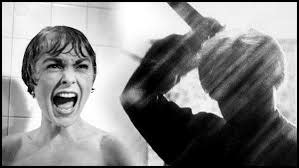
TALLY
: I don’t know if Psycho was a model, although we certainly both admired that movie very much. From the time Jonathan and I met to talk about the first draft, he said ‘We have to get inside the audience’s imagination. We have to let them do the work. You can’t shove this stuff in their face.’ Even something like when Brooke Smith…she played Senator Catherine Martin’s daughter, who is kidnapped by Buffalo Bill. He has this fake cast on his arm, and when he gets her in that van, he hits her in the head with it. But we don’t see it. It’s hidden by the van door. Even there, the violence is always off screen or implied. When Clarice Starling’s character is shown a picture by Chilton of a nurse that was attacked by Lecter, we don’t see the damaged face. We don’t see the photograph. We only see Jodie Foster’s reaction to it. That subdued approach was deliberate, and consistent throughout the entire film. Once in a while, I would say to Jonathan, shouldn’t that shot be a little bit more scary? Like when Clarice finds the head in the jar in the storage garage. I said, shouldn’t we have a zoom-in on that head? And Jonathan said, ‘A head in a jar is nothing in this movie. We don’t need to be wasting ammo on something like that. That’s nothing.’
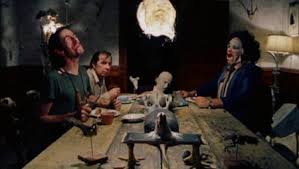
DEMME
: I remember how Texas Chain Saw Massacre was such a terrifying movie, the atmosphere, the characters, and a situation with a young woman, by the way, in the middle of this nightmare. There’s that crazy sh*t in there with the grandpa getting that little blood fix, drinking the blood at the dinner table, but most everything else was implied. That would have been an influence even if it wasn’t a conscious influence. You know how, at a certain point, we get our stories down instead of what are experiences actually are? I don’t have a pat answer because you’re bringing up something I haven’t thought through. But it brings me to a couple of things here.
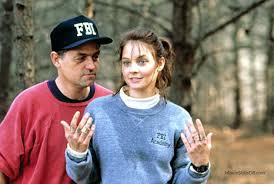
One was a lesson Jodie taught me in the first of the three times we met to talk about the possibility of her playing Clarice. Jodie taught me that this is a story of a young woman trying to save the life of another young woman. Maybe it’s a thriller. Maybe it’s a horror movie, but you have to honor that core story. [production designer] Kristi Zea and [cinematographer] Tak Fujimoto and I worked so intensely together, planning what that picture was going to look like. I think we wanted to take as high a road as possible. We wanted to welcome as many moviegoers as we could, and we just didn’t see it as a splatter movie, or a gory movie, or a crazy killer movie. It was a story of this young woman. I was very concerned about turning people off, and of the idea that people would hear, ‘Oh, no, there’s a scene that’s so gross, you shouldn’t go…’ I really wanted to make sure this great story reached as many people as it was capable of. So we were trusting the imagination of viewers to set the path as much as possible. The trickiest part we had was when Dr. Lecter hangs up [prison guard] Chuck Napier, eviscerated on that cage when Lecter escapes. There’s there’s this discovery moment and so a big deal leading up to that image. How are we going to show this? Kristi Zea went into just overdrive and came back with a lot of Francis Bacon art. The visualization of the eviscerated officer hanging up there is just a direct Francis Bacon design. When Kristi showed us the sketch, it was like, we got it. It’ll be staggering to see this, but it won’t make you run for the exit. I get creeped out by Francis Bacon’s paintings, and I can’t say exactly why. They’re all really disturbing, and there is an almost nimbus-like quality behind some of his frightening characters and stuff. There was a little bit of the archangel, a bit of the butterfly, definitely, in that shot.
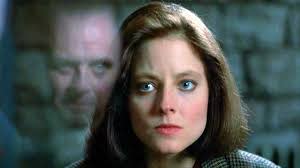
And the close-up shooting style? By the time I got to Silence of the Lambs, I was madly in love with close-ups because I’m madly in love with actors, and a basic premise of Silence of the Lambs is the story about two people, fighting their way into each others heads. So the close-ups and the subjective camera stuff, that was something Tak and I were so excited about. We started together on Roger Corman tight budgets and schedules, and there was no time for close-ups. You shoot. You go. You stay on schedule, or you get fired. Caged Heat was the first movie I directed and Tak shot, and every once in a while, we did a close-up. I was obsessed with Sam Fuller, who always made such dynamic use of subjective camera, and of course Hitchcock, the God almighty, who so brilliantly chose just the right moment, or two, or three in a movie, and went to the close-up to heighten the intensity. Tak and I were excited to try those techniques. We started playing with it on Married to the Mob. By the time we got to Silence, it was like, oh my God, this piece demands close-ups, and it demands subjective camera. We just went for it.
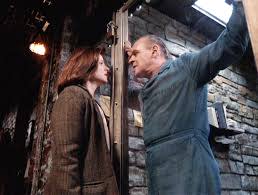
TALLY
: Those close-ups, they made you feel like these two people, Lecter and Clarice, are talking with no barrier between them. It makes it very intimate and uncomfortably close, and there’s no escape from their faces. The scene in Memphis when he’s in that special cell, that cage. It was shot so that gradually you don’t see the bars between them, at all. It’s as if there’s nothing restraining them. Yeah, this was a coming of age story, a woman trying to succeed in a rough violent male world, on her own terms. Jonathan was drawn by the idea of a strong woman character, he had them in his other movies. He said to me one time, ‘I’m a high estrogen director.’ But I saw the relationship between Hannibal and Clarice as something of a perverse sort of love story. There’s a muted sexual undertone to their relationship. She excites him. He’s not used to meeting somebody with such a pure spirit, and somebody so smart and concerned. His life is filled by boredom, and she’s the most satisfying thing that’s happened to him since he’s been locked up. The heart of the whole movie is this young woman and her spirit journey. It’s like a fairy tale, with two stepfathers. She’s got a wicked stepfather in Lecter and a kind stepfather in Crawford at the FBI, and it’s a sort of triangle in which she has to hold her own weight even though she’s far younger and less experienced than they are.
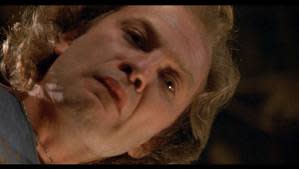
DEMME
: Here’s my little theory about why Silence of the Lambs is such a great novel and why there is such depth and richness to the Clarice Starling character, and why she could go toe to toe with any heroine from any American book of the last 50 years. Maybe it’s my fantasy. Thomas had written a couple books, Black Sunday, and then Red Dragon, which had Dr. Lecter in a smaller role, and Michael Mann turned that into a movie. Tom and I have become very good friends, and I’ve never said this to him, but maybe I will when we celebrate the 25th anniversary of this film in the spring. My fantasy is that Tom was at a really nice dinner party down in Miami, and he was introduced to some woman who said to him, ‘I’ve read your books, and you’re a very strong writer, but you can’t write women for sh*t. All you write about is men.’ I’m convinced that something like that happened and made Thomas Harris go, ‘I can’t write women, eh?’ And Clarice was born.
WHY THE SCARIEST VERSION OF THE ENDING MIGHT HAVE RUINED A CHILLING MOVIE
The Silence of the Lambs ends when Hannibal Lecter, from a payphone in the tropics, congratulates FBI Academy graduate Clarice Starling and gently warns her not to hunt him, ending the call by saying he had to go because he was having a friend for dinner, as he watched his hospital tormenter, Dr. Chilton, disembark from a plane. While that nervous laugh allowed movie goers to summon the courage to leave the theater and run to their cars, the original ending scripted by Tally gave no such quarter. When Lecter speaks to Starling, he compliments her outfit, which makes her realize he had watched from a distance. In the original ending, Lecter is cutting orange segments with a small paring knife, while he speaks to Clarice. As he hangs up the phone, the camera shot widens. We discover that he’s at a desk in a book lined office. There is the body of a bodyguard on the floor, and then we see Lecter is not alone. Chilton is trussed up in a chair across from him, the same method of restraints the doctor used on Lecter earlier in the movie. Lecter rises, slowly, a dreamy gleam in his eye, as he approaches his terrified victim, paring knife in hand. “Shall we begin?”
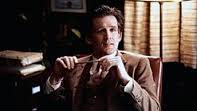
TALLY
: In the book, Hannibal says goodbye in a letter. That’s not cinematic. You had to see the faces. It has to be live. So I came up with this idea that Hannibal was stalking Chilton, who lived in Baltimore. I put him in a vacation house with security guards in Chesapeake Bay. I had Lecter overcome them and tie him up, and it ends just the way you described it. Jonathan, who hadn’t asked for a lot of changes, said, ‘You know, that’s kind of icky. Chilton is despicable, and we don’t like him, and he’s a crumb-bum, but he’s still a human being, and to have him trussed up for slaughter just is too squirmy. Ted, shouldn’t we give him some kind of fighting chance?’
I was a little miffed. I thought I’d been so clever to work out that ending. But I thought about it and I said, ‘What if Chilton fled the country instead of hiding out in his house? Gone, to a tropical island. Only, Lecter has figured out where he went and gotten there first? Never mind how Lecter would figure that out. I have no idea.’ Jonathan laughed, and said, ‘So you’re proposing that the last thing we shoot in this movie will make us all have to go to a tropical island at the studio’s expense?’ I said, ‘Yes, that’s exactly what I’m suggesting, and it’s very important that the screenwriter be along to safeguard the script.’ Jonathan said he could work with that. In the end, I didn’t go along anyway. I had a scheduling problem. They went to Bimini, off the coast of Florida. After all that added expense of going to a tropical island for the ending, they had horrible weather. The sun never came out for the whole week they were there. They didn’t have the ironic bright tropical colors, the clear blue skies. They ended up shooting it in a moody, overcast, windy effect, which worked. The one thing I asked of Jonathan was, I really want a crane shot for the ending. I don’t know anything about camera work, but I had this idea of us, rising above the action, as Lecter’s walks into the crowd, following Chilton. Jonathan said, ‘Well, we can’t put a crane in our carry-on luggage to fly to this island. It has to be on a barge or a ship or something to get it there.’ I said, ‘I really, really, really want that crane shot.’ He said, ‘Okay, you got it.’
DEMME: It was too horrifying a way to close the proceedings. Whatever we had done to get to that moment, that ending would’ve turned the movie into something else. One of those shockers that kicks you in the gut in the last minute, and then the screen goes black, and the credits roll. I thought this story deserved more to it than the crude trussed up Dr. Chilton about to be carved up by Dr. Lecter. And I didn’t think it was very cinematic. I thought, really? We’re going to end the movie in some room like that? That’s the image we take home with us? I liked the idea of paraphrasing what Tom Harris had done in his book. Yes, Clarice gets a call. I’m never going to bother you. And then we see a version of Chilton trussed up about to be eaten? Instead, let’s honor that Chilton is the target. That will be delightful. That’s something that we can take pleasure in actually, because Dr. Chilton has behaved so poorly previously in the story. Also, it was more interesting to see Lecter finally out in the world. We’ve seen him in cells for 90 percent of the time we’ve spent with him. Let’s see him out in the world, and then I was like, where would Dr. Lecter go, actually? And of course I was always so interested in Haiti which is off the beaten track.
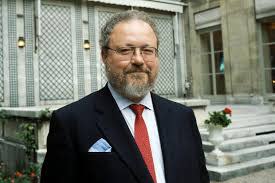
So it became, Dr. Chilton’s going down for a getaway, and Dr. Lecter is so far ahead of him. We know what’s going to happen, but we can leave the movie kind of…again, I can’t put this succinctly into words because I never really thought about it very much over these years. But Clarice deserved a richer ending. Cinematically, the story deserved that richer ending. So that’s what happened. We were shooting in Miami, and Ted and I were talking about the last scene, what’s that going to be, and the Haiti idea came up. I was like, I need to clear this with Thomas Harris, who I had a minimal relationship with. Why? Because when I got that project, I was like, this picture has the potential to be so excellent, and I really wanted to make it so good that I would dare to invite Tom Harris to a screening, and just let loose on whatever he has to say. I wanted Tom Harris to be happy. I want it to be a movie that Orion, that Jodie, Anthony, all of us, would feel we could not have done any better.
WHY AUTHOR THOMAS HARRIS NEVER SAW ‘THE SILENCE OF THE LAMBS’
DEMME: So, at that point, before we started filming, I called Tom. I told him what I just told you. He said, ‘Jonathan, I hope you don’t take this the wrong way, but I won’t come up and see a work in progress screening; I probably will never see the final film. I think you’re an excellent choice of director. You’re going to do a good job. I love the casting, but I’m probably never going to see the movie.’ Why’s that, Tom? And it turned out that he had really been struck when John le Carré saw an episode of the BBC adaptation of his book, with Alec Guinness in the role of Smiley. Le Carré said he could never write Smiley again, because now Alec Guinness owns him. Tom was afraid of a great performance that would take the character away from his imagination. He wished us luck, but he was not going to see the movie. But we had stayed scrupulously faithful to his great book and now we wanted to do this radical departure at the end. We were in Miami anyway and so I went to Tom’s house there. Gracious guy. We sit down, have a nice tea, and I tell him that I want to change the ending. I want to see Lecter out in the world, and how would he feel about that? So, Tom, who’s such a lovely guy and very deadpan, says, ‘Jonathan, let’s go out in the garden and talk about this.’ And he picks up a pair of gardening sheers and leads me out into the garden. I’m like, ha, ha, ha, ha. I know there’s nothing to be afraid of, but…So I told Tom in greater detail what I pictured. He gave us his blessing, but he said a couple of things I thought were great. ‘I’ll tell you, I would picture Dr. Lecter more quickly strolling on a fashionable back street in Zurich, looking at watches in jeweler’s windows. But if you take Dr. Lecter to the tropics, this one thing I’m sure of. He would never sweat.’ So, armed with that, when you see the movie, everybody’s sweating like crazy, except Dr. Lecter.
WILLIAM GOLDMAN SAYS NOBODY KNOWS ANYTHING; EXCEPT MAYBE HIM
DEMME: Craig McKay did such a brilliant job cutting that picture; we had a lot of tricky stuff to do in the editing room, and just we worked it, and worked it, and worked it. We took lots of stuff out, as one does in search for the perfect rhythm and flow. And then we knew we had it. We were going to have one more screening just to enjoy it, and we were going to invite some friends. I knew William Goldman a little, but I’m not quite sure why he was in this crowd of 75 people.
BOOKMAN: I invited him.
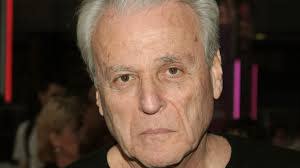
DEMME
: We watched the movie. It played like gangbusters, and we got terrific response from the audience. Craig and I were high-fiving each other. Okay, we’re locked, baby. I got a phone call the next day at my house. ‘Hi, this is William Goldman calling.’ I was like, ‘Oh, hi. God, one of my favorite writers of all time.’ He said he thought the picture was terrific, but he thought there was one section that was holding it back from its full potential power. This came after Dr. Lecter escapes, and there was this scene that took somewhere between eight and twelve minutes. Jack Crawford is called on the carpet. They are summoned by the attorney general, who was played by Roger Corman. Crawford’s kicked off the case. Clarice is kicked out of the academy. They go downstairs, and there’s this blistering, really terrific scene on the steps. Clarice just can’t let go of saving the senator’s daughter. Her brain is going a mile a minute, and Crawford is telling her, ‘Didn’t you hear what happened up there? I’m off the case. You’re out of this thing. There’s no way on earth…’ But she said she was going to Calumet. Clarice looks at Crawford and says, ‘God Dammit Jack, I’m going.’ We cut to her in the car, crossing the bridge where she’s about to encounter Buffalo Bill. So Goldman said, ‘Take all that out.’ I’m like, ‘What? That’s one of the biggest scenes in the movie. Really? What?’ And he says, ‘That’s what my gut’s telling me. You guys should really take a look at it.’ So I was like, ‘Well, listen, thank you for this. Goodbye.’
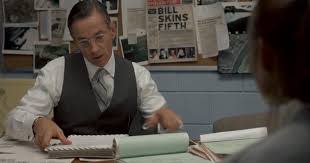
I got to the cutting room and told Craig about this conversation, almost laughing about it. Craig was not really pleased because we were really…locked. But we said, let’s just take that section out, and watch the movie again, right here on the Steenbeck in the cutting room. So we lifted it out, watched it. And the power of just going to Jodie without all that other stuff…I think Goldman might’ve called it ‘the third act launchpad exposition stuff.’ It was just an extraordinary difference, an immeasurable improvement. That is William Goldman.
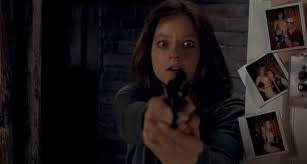
TALLY
: I remember going to the Showeast Convention in Atlantic City. First public screening. Very glamorous. They took us on a helicopter from a dock in Manhattan. Jodie was on the helicopter, Jonathan, and his friend, David Byrne. I thought, if this thing crashes, I won’t even make the fine print. After the screening was over, the audience was dead silent. Dead silent. I mean, they looked like we had stolen their lunch. I turned to Jonathan and said, ‘Do you think it’s possible this movie is too scary?’ And he said, ‘It could be.’ Then I went to pee, and I’m standing at the urinal, and all these distributors come swarming in. I heard one of them say to the other, ‘What do you think?’ The guy says, ‘Dynamite.’ So that was when we first knew that we really, really had something.
I was left feeling that we owed everything to Tom Harris, for one of the best thrillers ever written. We just managed to not screw it up. That’s kind of what it adds up to. He invented plot twists that I couldn’t have invented if I’d worked on this for 10 years. Lecter’s escape, the genius way he worked that out. And the twist when the SWAT team goes to the wrong house, and Clarice turns up at the right house, at the same moment. Genius. I couldn’t have come up with those twists. The climax with the darkness lit by Jame Gumb’s infrared goggles. That was one of the places where Jonathan said we can milk this. The arrival of the SWAT team? Oh, he’s not here, and Clarice…it’s one paragraph. Jonathan said, we can milk this forever; they’re setting up the raid in the wrong place and that the doorbell’s ringing at Gumb’s house. We think it’s them upstairs, and back and forth, and back and forth. He was shrewd to the movie possibilities of enhancing that.
HOW TO SWEEP THE OSCARS 13 MONTHS AFTER YOUR FILM IS RELEASED BY A BROKE STUDIO
DEMME: It was my idea to release that film on Valentine’s Day. There was no talk about Oscars, and Orion now was headed toward Chapter 11 bankruptcy. There was tremendous excitement at Orion about this picture and its box office potential, but there were increasing concerns about loss of control. Some other partners had come in. The big four guys, Bill, Mike, Eric, and Arthur, no longer controlled Orion. Those guys, they bit the bullet, even talked of trying to get it into release in December, where there were big audiences. There was no thought of awards, but there just wasn’t time to launch it. So February became the date, and it was sad because even as the picture just kept doing better and better, the financial woes at Orion got worse and worse. These two things were going on at the same time. This beautiful, amazing company was slowly going under, even as its biggest hit was flourishing at the box office.
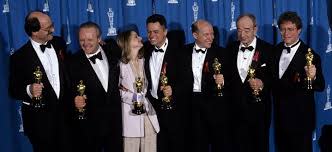
TALLY
: My sense is that they knew what they had, but they didn’t want to compete with themselves. They had Dances with Wolves in December, and they would’ve been competing with themselves. Plus, they were going bankrupt. So it was a weird situation for Orion. Our movie was finished for many months before it was released. They held us back and held us back and then essentially dumped us in February for a cash haul. As far as they knew, they were dumping any awards chances, but they needed a cash infusion, quickly. They knew they had a hit from the previews and screenings, and from that Atlantic City screening for East Coast distributors, where you could hear a pin drop. We knew that it was going to be a big movie. I remember reading an article by William Goldman about that year’s Oscars, the ’91 Oscars, and him writing, ‘The winner is Silence of the Lambs. Just kidding. It won’t open in time.’
Still, we were guardedly optimistic, even though we didn’t have the advertising budget that Prince of Tides, Bugsy, JFK and Thelma & Louise all had. We had won most of the critics awards, and more importantly, we had won the guild awards, the Producers Guild, Directors Guild, Writers Guild, the real insider professional awards. There were no SAG awards at that time, but this all seemed a very, very strong omen. Those other films spent lavishly, but we had one thing they didn’t, and it was revolutionary. Our film had a videotape, and Orion had just enough money scratched together to send them to voters. That was still a new idea, and no movie had opened far enough in advance to be on videotape. Maybe it wasn’t the only film with a screener, but people said, ‘Oh, I remember that movie, and I really liked it. I’ll look at it again.’ It saved our lives, that Orion had just enough money left to send a videotape. That was the extent of it. They didn’t reopen the film in New York and LA. They didn’t run extensive ads in the trades. That was it. They sent out a videotape.
DEMME: The awards were shocking. We knew how great Tony, and Jodie, and everybody was. But you just don’t think in those terms because, at the end of the day, it is a thriller. It has this young woman trying to save another young woman, but it is a thriller. It doesn’t seem like an Oscar movie. The nominations took everybody by great surprise. We thought these bigger pictures would win the prizes, and the only thing I can remember us ever really talking about was the impulse to put Anthony Hopkins in the Best Supporting Category because his screen time was so relatively short. He was on screen for less than 20 minutes, which would seem to relegate him to Best Supporting Actor. I just said, ‘Look, you guys, let’s have as much fun as we can with this. That’s not a supporting performance. It’s an outstanding achievement in a leading role by a male. So let’s go for it.’ We all went out for the Academy Awards, and then…we started winning. I was just completely freaked out. There was a moment when we were seated behind Warren Beatty, who was a few seats down from Arthur Krim and Eric Pleskow. After the second award, Warren Beatty turned around and said to Arthur and Eric, it’s going to be a sweep.’ We were like, ‘A what?’ So that was that.
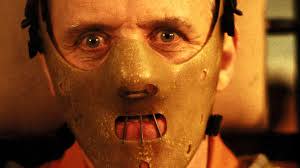
TALLY
: I can understand why Orion didn’t spend. There was no theatrical upside. I think it helped that the movie, when it opened, had a phenomenally long run you don’t see now, when it’s all about open and close worldwide, quick, and grab the money as fast as possible. We were in theaters for about five months. We were the number-one movie at least five, six weeks in a row. I remember Jonathan once talking about the scenes between Lecter and Clarice in this movie, and that whole relationship and the way it plays out in this movie. That is new, dramatically, he said. The way Lecter becomes involved in an active case in a teasing, manipulative way. Their whole relationship, their whole sort of wicked stepfather, sexual undertone, mental chess game that’s going on between them. Jonathan said, ‘I’ve never seen that before, and I don’t think anybody else has, and I think that makes this movie new.’ The thing is, the book was such a banquet, a feast. It became a matter of choosing wisely and try not to overdo it. The book was an embarrassment of riches, great plot and great characters. So it was a matter of selection, and editing, and redesign. It wasn’t a matter of invention so much.
Related stories
Tom Hanks, Jodie Foster, David Byrne, Meryl Streep Remember Jonathan Demme
Directors Guild Hails Jonathan Demme As "Iconic" & "Groundbreaking"
Fox To Honor Jonathan Demme On Tonight's 'Shots Fired' Episode
Get more from Deadline.com: Follow us on Twitter, Facebook, Newsletter

